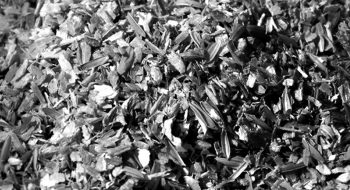Food Fraud at MSU
John Spink, PhD, MS, is the director of MSU’s Food Fraud Initiative and an assistant professor at the MSU College of Veterinary Medicine. Spink’s research, which began in 2006, includes behavioral sciences and criminology, and led to 2008’s Anti-Counterfeiting and Product Protection Initiative. Today, his work focuses on food fraud, business risk and enterprise risk management, general anti-counterfeit strategy, anti-counterfeit measures, and outreach.
Spink is the most-cited food fraud prevention scholar in the world, and has led or been involved in many top global initiatives, such as writing the first scholarly definition of food fraud (2011) and helping lead the International Organization for Standardization technical committee that first defined food fraud. In addition, Spink’s research is the foundation of the Global Food Safety Initiative’s compliance requirements, which are essentially universal.
Watch Dr. Spink’s interview with NBC.
It’s Sunday morning, and the chilly, damp weather isn’t bothering you today because you know that just down the stairs, a fresh cup of coffee and warm, fluffy pancakes drenched in maple syrup await you. Or, maybe you’re more of a toast-slathered-in-honey-type of person. Or, maybe dinner is more your jam; how about some pasta tossed in olive oil, topped with salty, nutty parmesan cheese alongside a generous glass of wine?
Much of our lives revolve around food, and not just any food—our favorite foods. But, how much of that honey on your toast is actually honey? What about the maple syrup? What’s in your olive oil? And is that really parmesan cheese you’ve just sprinkled atop your pasta, or is it… something else?
The Cost of Cutting Cost
Food fraud occurs when a food product is intentionally adulterated, usually to increase profits. This can include altering, substituting, or tampering with ingredients or raw materials and misrepresenting or mislabeling a food product or packaging at any point in the food supply chain. According to MSU’s Food Fraud Initiative, the food fraud industry costs global consumers between $30 and 40 billion each year.
CBS News reported in a 2013 article—which quotes Dr. John Spink, global food fraud prevention strategy expert and assistant professor at the MSU College of Veterinary Medicine—that the top 10 most adulterated foods worldwide are:
- Olive oil
- Milk
- Honey
- Saffron
- Orange juice
- Coffee
- Apple juice
- Wine
- Maple syrup
- Vanilla extract
While food fraud is often about making money, the price of cost savings sometimes ends up much higher than anticipated. While most food fraud has posed little danger to consumers, approximately 300,000 babies in China became ill with kidney problems in 2008 due to contaminated milk powder. Investigators found traces of melamine, a chemical used in industrial plastics, adhesives, and other materials. This case of food fraud resulted in 6 deaths.
The Worst Offenders and What You Can Do
Consumers can take action to protect themselves against food fraud. The first step is awareness. Here’s a roundup of the food that most frequently fall victim to food fraud:
- Olive oil
- Honey
- Parmesan cheese
- Saffron
- Seafood
- Milk
- Coffee
- Fruit juices
- Spices
- Tea
- Hard cheeses
- Balsamic vinegar
- Caviar
- Truffle oil
Is Your Parmesan... Parmesan?

Dr. Spink talks food fraud.
Unfortunately, it’s important to note that no food or food product is exempt from this list. Even whole foods like produce can fall prey to food fraud. (Would you like to pay a premium for some plain-Jane apples that I’ve labeled as organic Honeycrisps? I thought you might.)
In addition, there are other steps consumers can take:
- Shop wisely. Do your grocery shopping at a retailer you trust to vet their suppliers (and those suppliers’ suppliers), or shop at smaller, local grocery stores or farmers markets.
- Buy trusted products. Stick with brands that have provided you with positive past experiences, especially if they are historically known and trusted by others.
- Eat and cook more often and with whole foods. The fewer ingredients something has, the less opportunity there is for food fraud to occur. For example, instead of buying ground coffee, invest in a grinder and shop for whole beans; same with spices (although, you’ll want separate coffee and spice grinders—fennel-flavored coffee, anyone?). Try juicing your own produce, or just eating it whole for the added benefit of fiber. Make your own easy jams, sauces, and other prepared foods you might normally buy off the shelf. Grow your own herbs and produce if you have room for a garden or window planter. Buy entire fish and blocks of cheese instead of indistinguishable filets or shreds.
- Report suspected fraud. Consumer complaint coordinators for the United States Food and Drug Administration (FDA) handle adverse reactions and other problems with FDA-regulated products. Contact your coordinator to file a report.
